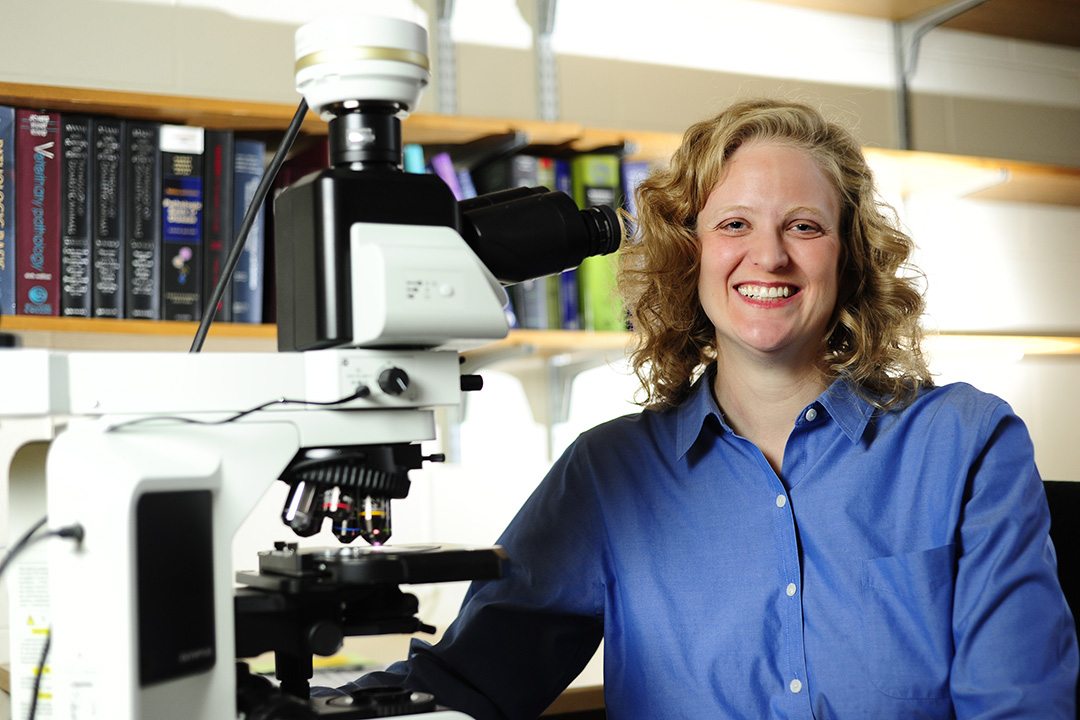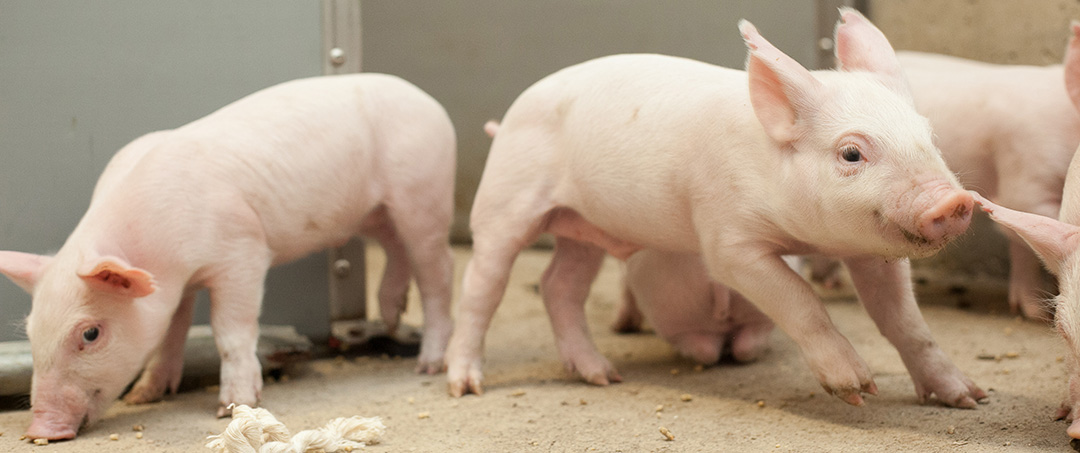
Building a better influenza vaccine for pigs
When people contract influenza A virus—commonly known as “the flu”—the symptoms start within 24 hours and peak by 48 hours of infection. People have a few days of sickness that can include fever, runny nose, eye inflammation, loss of appetite and a lack of energy, along with coughing that can last two weeks.
By Sarah ThomasWhen pigs get the flu, symptoms are similar but on a much larger scale. It can begin with a few sick animals and result in thousands of sick young pigs. While most pigs recover from the infection, a small number develop pneumonia and can die from complications.
Besides animal health concerns, there are financial issues for swine producers. Infected pigs usually lose their appetites and take longer to reach optimum selling weights, with producers making less profit per pig.
Annual vaccinations help producers protect their swine herds from the full effects of influenza. But like human vaccines, influenza vaccines for pigs must be updated regularly to ensure the best protection by matching vaccine strains with what is circulating in the population.
Updating vaccines for pigs is a research focus for Dr. Susan Detmer (DVM, PhD), a veterinary pathologist and associate professor in the Western College of Veterinary Medicine (WCVM) at the University of Saskatchewan (USask). As the only researcher doing active surveillance of influenza A viruses in pigs in Western Canada, she’s conducting critical work.
“We aim to produce a readily available, regionally effective vaccine for pigs—essential for ensuring the health and welfare of western Canadian swine herds and preventing economic losses,” said Detmer.

She and her team send out sample collection kits, grow viruses and undertake live pig trials to characterize the different strains of influenza present in the pig population. Detmer also contributes virus sequence data to the Influenza Research Database, a global database that houses virus sequences of influenza present in all species, including humans.
Commercial influenza A vaccines have successfully protected North American swine herds, but in recent years, available vaccines have been less effective—particularly in Canadian pigs. Since viruses constantly change, strains are now much different from older vaccine strains, with some also unique to regions such as Western Canada.
“To further complicate matters, influenza viruses of humans and pigs are very similar, and some of the same influenza A viruses we deal with here can infect both species,” said Detmer.
She adds that human health also depends on using vaccines that effectively protect pigs from newer strains of influenza, so that they are not exposed to them. When human influenza A viruses spread to pigs, they can mix with pig influenza A viruses to form a reassortant virus (having genetic material from multiple viruses). People and pigs have similar virus receptors in their respiratory tracts, so this mixing could occur in humans or pigs.
Detmer and her research team are developing and testing new experimental pig vaccines that protect against virus strains present in western Canadian pig populations. It’s a painstaking process that involves collecting numerous lung and saliva samples and nasal swabs from unvaccinated swine herds, as well as from herds that have shown low protection from their current influenza vaccines.
Once researchers determine the relationships of influenza viruses throughout the region, they can measure expected cross-protection of a new vaccine to other flu strains. They can also assess the potential protection of new vaccines and the effect of mutations on that protection.
The Saskatchewan Ministry of Agriculture, Saskatchewan Agriculture Development Fund, Alberta Agriculture and Forestry, Merck Animal Health, and the Natural Sciences and Engineering Research Council of Canada have provided funding for the Detmer lab’s influenza research work.
Sarah Thomas is a WCVM veterinary student who was part of the college’s Interprovincial Undergraduate Student Summer Research Program in 2019.

